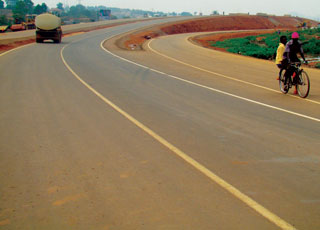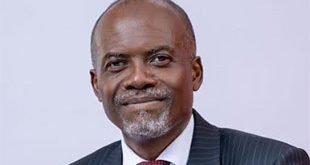
By Independent Team
At the recent National Consultative Budget Workshop, Finance Minister Ezra Suruma spoke tough over corruption and inefficiency. To improve performance, he said, his ministry would improve communication, publish releases of funds, and clearly name and shame the poor performers.
“In instances of chronic poor performance of an institution, my ministry will not hesitate to revoke the appointment of such accounting officers,” he said.
But even as he spoke, some of the gathered ministry officials and local government bosses were sneering.
“We have heard all that tough talking before,” one of them said, “what we want is action against culprits”.
After the meeting Dr Suruma told The Independent in an interview: “My work is to provide resources, collect revenue and allocate it to sectors that should implement. But we are being a bit more assertive in terms of monitoring and accountability. If we have given you a certain amount of money and you have not accounted for it; we will not give you more.”
Suruma was angry that although the government has consistently increased money for health care, education, safe water and roads from Shs 2.3 trillion in 2000/01 to Shs 6 trillion in 2008/09, the delivery of services has not increased correspondingly.
“The inefficiency that currently exists in most government institutions is unacceptable,” he told the Budget workshop.
He mentioned the low absorption rate and the shoddy work. Low absorption means more money is allocated but only a tiny bit is used. The rest is left lying on the accounts of the implementing agency.
Suruma said activities implemented by some ministries in the last 6 months were outside the submitted work-plans.
“This has been coupled with cases of misreporting in the same sector which is tantamount to corruption,” he said.
He gave the example of the Ministry of Education and Sports (MOES) whose progress report showed that Shs 40 million under the emergency construction and rehabilitation of Primary Schools had been spent to construct 2 classrooms, 2 VIP latrines and to provide 33 seater desks to Mahempe Primary School in Sironko district yet monitoring visits indicated that no construction had taken place at the school as of November 2008.
According to findings by a new body, the Budget Monitoring and Accountability Unit (BMAU), agriculture ministry projects have used up less than half their received money; same in the health ministry. Here only the District Infrastructure Support Programme I and Development of Social Health Initiative have used money properly. The water sector used only between 17 percent and 78 percent; and industrial parks only 28 percent.
“While we have prioritised roads development, it is evident that slow implementation because of the failure to plan for designs, which is common, leads to low utilisation of public resources,” Suruma said.
Suruma said in June 2008, NAADS was allocated Shs 100 billion to bring hand tractors, increase the use of fertilizers, provide seed and seedlings but, because of lack of strategic planning for all institutions, by January 2009 NAADS had not procured the 500 tractors mid-way the budget period.
Another example was in Kitumba sub-county in Kabale district where the community members connived and shared the funds.Â
“The local suppliers who were also farmers in one of the parishes in Kitumba sub-county collected goats in the village and pretended that they had been procured by the procurement committee. After being verified by the district-authorities, the owners took away their goats and they shared the money,” he said.
He said although government spending on provision of rural water rose from Shs 36 billion in 2000/01 to Shs 61billion in 2006/07, an average annual percentage increase of 10.4%, but rural water coverage has attained average annual increase of only 1.8%.
Because of this, Suruma said, his ministry will now only allocate funds to spending agencies that have proof of readiness, for example having feasibility study reports, bills of quantities and so on.
Other implementers blame failure to use money allocated to them to “lengthy procurement procedures and at times “inadequate funding” where the process of accumulation takes place before actual implementation starts.
Suruma’s tough-talking comes at a time when the global financial crisis has shrunk revenue performance in the first half of the current Financial Year. He said all sectors will be required to work within their ceilings.
This year the government allocated Shs 1.1 trillion (for the first time surpassing the allocation to the education sector). Suruma said, however, that he was concerned about the state of readiness of the road sector to absorb these resources and to ensure that the road infrastructure is developed and maintained to required standards, and within reasonable costs.
He said progress is slow and unit costs of construction of roads and buildings remain are too high.
“We have information that the main reasons for varying unit costs across the country, are not due to differences in levels of development but mainly a result of poor contracting, and limited supervision,” he said.
Suruma has introduced a maze of monitors for the government funds.
He now wants the ministries of agriculture, energy, education and health to indicate the funding budgeted for each unit e.g. every school and health centre. The allocations should be known by the sub-county chiefs, the parish chiefs, the members of parliament and the intelligence officers.
He also wants MPs to have a budget that indicates the allocations for the roads, hospitals, schools, water-works etc in their constituency and follow the release of funds by the Ministry of Finance to the District.
The monitoring and accountability measures are tough, but as one wag said over tea and biscuits at the Budget workshop, what remains is whether finance managers can be made to realise that Dr Suruma is not Dr Siluma, which in the local vernacular means “Dr I don’t bite”.
 The Independent Uganda: You get the Truth we Pay the Price
The Independent Uganda: You get the Truth we Pay the Price



